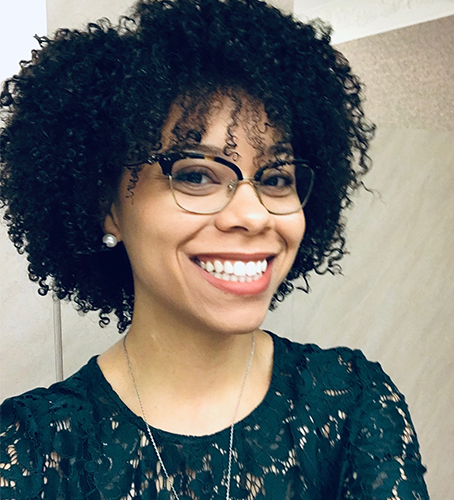Rachel Smith
Ph.D. - Educational Policy, Planning & Leadership - Higher Education Administration

Education
- 2024, William & Mary, Ph.D. - Educational Policy, Planning & Leadership - Higher Education Administration
- 2016, Regent University, M.T.S.
- 2010, William & Mary, B.A. in Linguistics and Sociology
What kind of professional experiences did you have prior to beginning this degree?
Prior to beginning the Ph.D. in Educational Policy, Planning, and Leadership (EPPL), I served in several administrative positions at Regent University. Ironically, I went there to earn a degree in theology, but I ended up finding a career in higher education. I started as a graduate assistant in their law school and migrated through several roles at the institution, to include academic advising and program manager positions. I discovered that I enjoyed working in higher education, but I did not see myself working in academic advising or program management long-term. The last position I held there was in accreditation and compliance. I started that role in the midst of the institution's Southern Association of Colleges and Schools Commission on Colleges (SACSCOC) reaffirmation process. The world of institutional effectiveness, quality assurance, and best-practice fascinated me. I had found my best-fit in higher education.
As a student pursuing a doctorate in Higher Education Administration, why did you choose this field?
Accreditation is very cool! Working in the institutional effectiveness unit of any institution will afford you a very unique perspective of your institution and how all of the units function together—both on paper (i.e., as represented by the organizational chart) and politically. I didn't know what to expect when I started working in accreditation, but it was one of the most rewarding and most challenging positions I've had. There is always something new to learn. Accreditation motivates me because it is essentially consumer protection for students. It ensures that students complete quality degree programs taught by faculty members with the appropriate credentials. These variables help ensure that students are qualified for the jobs they seek after graduation. It is discouraging to hear about students who spend several years and thousands of dollars completing degree programs that don't qualify them for jobs or additional education. Accreditation helps prevent this from happening.
What do you hope to be doing after graduation? In 10 or 15 years?
I've thought about my post-graduation plans a lot. When I applied to the School of Education, I thought I wanted to be a consultant for institutions going through the SACSCOC reaffirmation process. After a few months in the EPPL program, I have realized that while I want to work with institutions occasionally, I am now considering positions in higher education accreditation policy at the national or state level.
Why did you choose William & Mary and specifically your degree program? What sets this degree program apart from those offered at other colleges?
William & Mary was one of three schools I considered. Specifically, I looked at degree programs that included coursework in policy, governance, and leadership. Through my research, I discovered that degree programs in this area were similar in their length and required courses. I knew that my decision would ultimately be about best-fit. William & Mary's School of Education stood out through the warmth of the faculty and the high praise I heard from students. I was very impressed with faculty members' speedy responses to emails and how eager they were to listen to my research interests and experiences in higher education. I attended an event for prospective students, and I watched the faculty interact with other students with the same keenness. I really appreciated the respect shown to each potential student. Overall, I knew I did not want to enroll in a graduate program in which the enrolled students were extremely competitive because I find it difficult to thrive in that type of environment. I perceived that the School of Education offered a space where all of its students can shine and thrive in their areas of interest and in their talents.
What has been the most influential experience you've had so far in your program?
My favorite experiences have been simple and organic. I enjoy talking with my classmates about their interests and their future goals. I also enjoy meeting with faculty. I always learn something new. Also, I am working on a research project with my advisor and three other students. Overall, it's fun to "nerd out" with the School of Education community.
Is there any additional information you would want a prospective student to know about the School of Education and its degree programs?
I knew that I needed to go back to school, but it took me several years to decide what I wanted to study and where I wanted to study it. I wanted to engage with a topic I enjoyed and one that afforded my career direction and options. Also, I wanted to attend a school where I would be happy. I've learned that the School of Education is a place where students can thrive and explore the research interests they care about and discover new ones. I was really nervous when I accepted the School of Education's offer, paid my enrollment deposit, and notified my supervisor that I would be leaving in a few months. Becoming a full-time doctoral student was a challenging transition for me, but it has been one of the most rewarding choices I've made. I've learned a lot about myself and a lot about the field, and I've realized that I was far more prepared for doctoral work than I thought. I encourage prospective students who are on the fence to take the plunge! It is a worthy adventure, and the School of Education's faculty members and students are ideal partners for the journey.